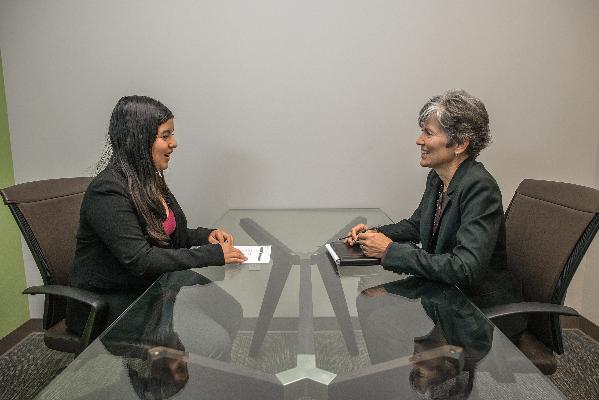So, you applied for a job and have been contacted for an interview.
That is great, congratulations. You have passed the first hurdle.
Now you need to face the second one, and you cannot just wing it. You have to prepare, even just a bit.
Here you’ll find 5 basic tips for a successful job interview. We can’t guarantee you’ll get the job – after all, there are other candidates as well – but they will improve your chances.
1. FAMILIARIZE YOURSELF WITH THE BUSINESS
Seems fairly obvious, right? Well, too many people fail to even simply look at the website of the company which might hire them.
A good thing to do is, then, to do some research. You don’t need to go check their yearly balance, but perhaps you should have a look at the online presence of the company, see if there are some reviews (and what they say), understand what is their actual business.
In other words, familiarize yourself with the business.
By the way, take notice if you find no website, no social media presence, no online track, or if you find a lot of disgruntled reviews of people complaining about the job or the company. They might be red flags.
2. MAKE THE FIRST IMPRESSION COUNT
Make sure that you go to the interview formally dressed as first impressions are very important!
Depending on the context you can forego tie and jacket, but at the very least you should dress business casual.
In addition, try to be relaxed and at ease. Smile from time to time, be polite but not meek, and keep a good posture. Body language is important, and while appearing arrogant is a definitive no, showing confidence is always appreciated.
3. PRACTICE YOUR REPLIES TO SOME QUESTIONS
Indeed you should. After all, it is an interview, so you will have to talk, but remember to keep it simple and to not digress.
You will certainly be asked some basic questions such as:
· Tell me about yourself.
· What are your strengths?
· What are your weaknesses?
· Why do you want this job?
· What makes you our best choice for this position?
You will also probably be asked behavioural based questions, so you should do some practice answers to those in order to feel confident during the interview. Examples of such questions might be:
· Can you give an example of when you had to overcome a difficult conversation with one within your team?
· Can you give me an example of a time you did something wrong and how you handled it?
· Can you give me an example of when you had to prioritize? How did you determine the top priority?
· Can you give me an example of a process you may have enhanced/improved?
· Can you give me an example of how you handled conflict on the workplace?
· Can you give me an example of how you contribute to a positive team environment?
Similar questions might not be asked, but if they are, make sure you are prepared with some good examples.
One thing to remember is that you must be as specific as you can when answering behavioural based questions, giving details on the situation, the action that you took, and the result of your action. Remember to keep it simple though.
You may or may not be asked questions about salary and career expectations, but do mentally prepare yourself for those as well.
4. PREPARE YOUR OWN QUESTIONS
There will be a moment towards the end of the interview when you will be asked if you have any question. Do it. Use this possibility.
Prepare a few pertinent questions, for example:
· What are the career possibilities?
· What kind of contract will I be offered?
· Is there a chance to be hired long-term afterwards?
· Will I work in a team or mostly on my own?”
5. BE MINDFUL OF WHAT YOU ASK OR TALK ABOUT
Certain sensible topics have no place to be during an interview, such as politics, religion, sexual preference, whether or not you intend to have children and so on. You should avoid talking about them and so should be for your interviewer.
Never ask about personal matters and only share what information you are comfortable sharing about yourself.
Other topics such as money should be treated with care. Avoid asking immediately about your wage, because even though it is your right to know about it, you do not want to appear only interested in that. If the pay is not known beforehand, wait for the interviewer to talk about it or inquire yourself when the interviewer mentions the contract. You might even resolve to discuss it during a subsequent interview.
Well, that’s it. We hope these 5 tips can be of help.
For some other useful tips to know before getting an interview, you can read this article.
If, instead, you'd like to know how to properly quit your job, click here
